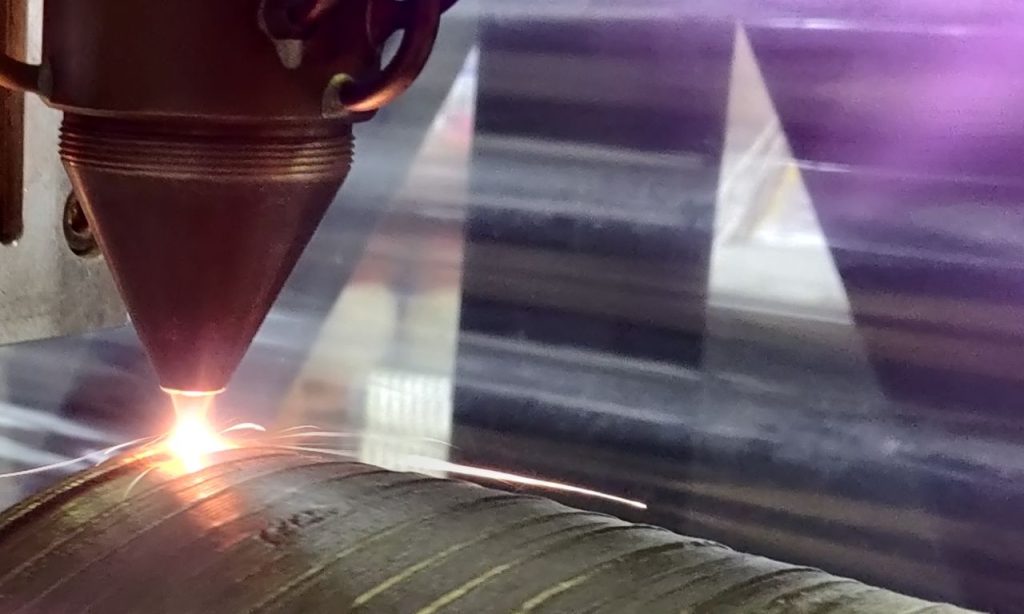UK-based rocket and area expertise firm Skyrora has been chosen as a main contractor within the European Area Company’s (ESA) Basic Help Expertise Programme (GSTP). The undertaking focuses on additive manufacturing (AM) of Tanbium, a high-temperature alloy developed in collaboration with UK specialist in customized metallic powders Metalysis and Thermo-Calc Options, a supplier in Built-in Computational Supplies Engineering (ICME). The initiative will validate Tanbium for rocket engine components, together with nozzles and combustion chambers, and different extreme-environment functions.
Ida Berglund, Managing Director of Thermo-Calc Options, highlighted the innovation advantages. “We’re proud to see this breakthrough examined by such an skilled and forward-thinking associate alongside knowledgeable powder producers—a really perfect staff to showcase what Tanbium can obtain in rocket propulsion methods.””
Simon Hyde, Technical Officer at ESA, added, “Utilizing this Tanbium alloy, the consortium are addressing a crucial problem for ultra-high temperature functions in Europe. They’re opening a doubtlessly wealthy seam for area functions and offering Europe with a resilient provide chain.”

Tanbium Efficiency and Benefits
Tanbium is designed to beat limitations of conventional aerospace alloys, surpassing legacy supplies similar to C103 and IN718. It gives prolonged burn life, increased working temperatures, as much as 30% weight discount, 95% much less materials waste by way of 3D printing, and as much as 40% decrease part prices.
“This undertaking reinforces Skyrora’s dedication to sovereign launch functionality and supplies innovation,” stated Skyrora’s Director of Enterprise Improvement, Derek Harris.
Beginning on this quarter, the nine-month ESA-funded undertaking consists of 3D printing trials, materials validation, mechanical testing, and enterprise case evaluation. Skyrora will lead integration utilizing its Skyprint 1 and a couple of Direct Power Deposition (DED) platforms, with Metalysis supplying powders by way of its FFC Cambridge solid-state course of, and Thermo-Calc Options offering alloy optimization by way of superior computational modelling.


Metalysis’ CEO Nitesh Shah highlighted that, “Skyrora got here to us because the superior supplies associate as a result of solely our solid-state course of can produce such an enormous vary of novel alloys. We stay up for efficiently finishing stage 1 of this undertaking and transferring to phases 2 and three, and so making an actual affect inside the area propulsion market.”
Rising Excessive-Efficiency Alloys in Aerospace
Tanbium is a part of a broader development in superior alloys for AM and extreme-environment functions. For instance, niobium alloy powders specialist TANIOBIS GmbH is growing niobium-based powders like AMtrinsic C-103 and AMtrinsic FS-85, to resist temperatures above 1000 °C for aerospace propulsion and structural elements. These alloys allow 3D printed components with advanced geometries, weight-saving options, and inner channels that conventional strategies can not obtain.
Equally, Oak Ridge Nationwide Laboratory (ORNL) within the U.S. examined DuAlumin-3D, a new aluminum alloy for high-temperature automotive elements, which reveals promise for aerospace and warmth exchanger functions. ORNL lead researcher Alex Plotkowski famous that the alloy maintains thermal properties whereas avoiding cracking throughout laser powder mattress fusion (LPBF), highlighting its potential for lightweighting and effectivity enhancements.
Assist form the 2025 3D Printing Business Awards. Join the 3DPI Professional Committee at this time.
Prepared to find who received the 2024 3D Printing Business Awards?
Subscribe to the 3D Printing Business publication to remain up to date with the newest information and insights.
Featured photograph reveals additive manufacturing of rocket engine elements utilizing DED expertise. Photograph by way of Skyrora.

